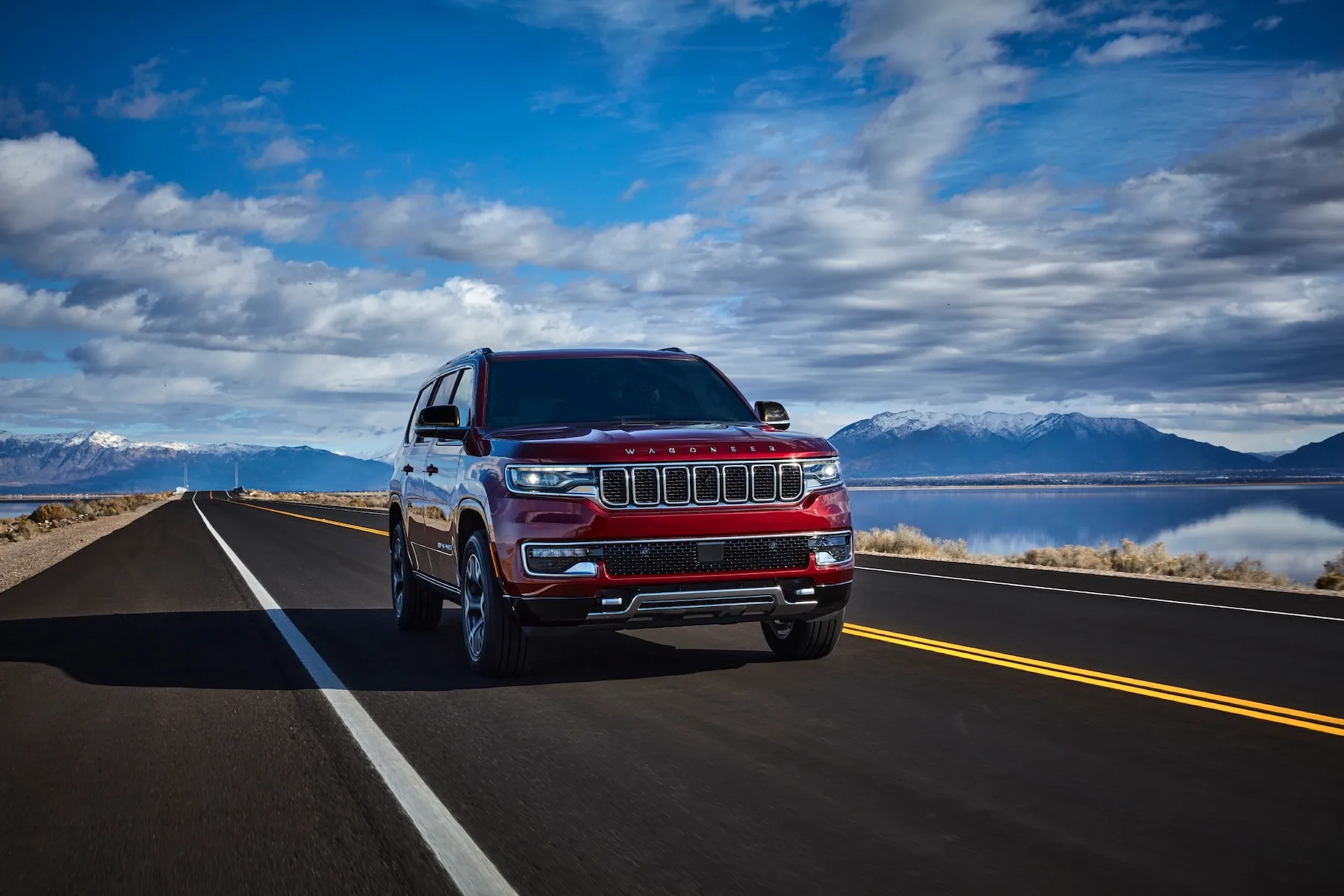It’s the third week of May 2024 and both India Passenger Vehicle Inc and Two-Wheeler Inc are firing on all cylinders when it comes to new vehicle sales. FY2024 was a record-breaker for passenger vehicle sales on two counts – best-ever fiscal numbers of 4.21 million units and the highest utility vehicle wholesales of 2.52 million units.
The two-wheeler industry clocked total wholesales of nearly 18 million units. While this was the best performance in the past five fiscals, two-wheeler demand is still short of the best-yet 21.1 million units in FY19. However, what’s common to both segments are that they are also the ones upping the safety quotient via vehicle recalls.
23 OEMs – 16 carmakers and 7 two-wheeler manufacturers – have since 2012 recalled 5.67 million vehicles comprising 39,31,185 cars and SUVs (69% of total recalls) and 17,43,195 two-wheelers (31% of recalls to date).
CY2021 was the year with the highest recalls: 1.37 million units
In what is an indicator of a maturing automotive market, after SIAM’s Code of Voluntary Recall came into effect in July 2012.A total of 5,674,380 vehicles or 5.67 million units have been recalled in India (see data table above). HMSI’s recall of 615,566 scooters and bikes on May 29, 2021 is the single largest single recall yet. This also led to CY2021 being the year with the highest number of two-wheeler recalls – 892,604 units. Interestingly, CY2021 also topped the PV recall scale with 444,619 units.
A total of 23 OEMs – 16 carmakers and 7 motorcycle and scooter manufacturers – make up this list of recalls over the past 12 years comprising 39,31,185 cars and SUVs (69% of total recalls) and 17,43,195 two-wheelers (31% of total recalls to date).
 Cars and SUVs, with 3.93 million units, account for 69% of the total 5.67 million PVs and two-wheelers recalled in India between July 2012 and April 2024.
Cars and SUVs, with 3.93 million units, account for 69% of the total 5.67 million PVs and two-wheelers recalled in India between July 2012 and April 2024.
 Honda’s combined vehicle recalls of 18,34,309 units account for 32% of the total India PV and two-wheeler recalls of 5.67 million units and reflects the Japanese auto major’s strong focus on vehicle safety.
Honda’s combined vehicle recalls of 18,34,309 units account for 32% of the total India PV and two-wheeler recalls of 5.67 million units and reflects the Japanese auto major’s strong focus on vehicle safety.
While SIAM’s voluntary recall code has paved the way to a structured vehicle recall exercise in India, the operation got another charge in April 2021. The Ministry of Road Transport & Highways (MoRTH) has, effective from April 1, 2021, mandated stiff fines, which go up to Rs 1 crore, on vehicle manufacturers. Over the past 12 years, annual recalls in India crossed the million-mark on two occasions. CY2021 with 1.37 million units was the year with the highest number of recalls — this comprised 892,604 two-wheelers and 444,619 PVs. The million recalls mark was crossed for the first time in CY15 —10,00,467 units accounted by 983,063 PVs and 17,404 two-wheelers. Company-wise, Honda – across both passenger vehicles and two-wheelers – tops the recall list. While Honda Cars India has recalled 963,939 cars, sedans and SUVs over the past 12-odd years, Honda Motorcycle & Scooter India has inspected and remedied 870,370 scooters and motorcycles. Honda’s combined vehicle recalls of 18,34,309 units account for 32 percent of the total India PV and two-wheeler recalls of 5.67 million units and reflects the Japanese auto major’s strong focus on vehicle safety.
317,531 vehicles recalled between January-April 2024
Between January and end-April 2024, a total of 317,531 vehicles have been voluntarily recalled by their manufacturers – 300,725 two-wheelers and 16,806 cars and SUVs. As per official industry data for passenger vehicles and twowheelers published by apex industry body Society of Indian Automobile Manufacturers (SIAM), this period saw a two-wheeler OEM (India Yamaha Motor) recall 300,725 Ray ZR FI 125 and Fascino FI 125 scooters manufactured between January 1, 2022 and April 1, 2024. The reason cited was the “brake lever getting stuck while applying the front brake, which may lead to hard/very hard wheel movement affecting vehicle performance.”
Three carmakers (Toyota Kirloskar Motor, MercedesBenz India and Hyundai Motor India) have recalled 16,806 cars, sedans and SUVs this year till April 30, 2024. The TKM recall was for 2,305 Glanza hatchbacks, produced between April 4 and August 6, 2019 to inspect the “impeller in the (petrol Glanza) low pressure fuel pump motor may deform and cause it to become inoperative and may lead to engine not starting or stalling of engine.” TKM also recalled 317 units of the Land Cruiser 300 and Lexus LX500d to check the transmission assembly.
In an indication of the extremely high priority it accords to safety, Mercedes-Benz India, between January and April 2024, recalled 6,486 sedans and SUVs, the reason being “certain 80 A fuses may not correspond to the requirements.” On February 21, 2024, Hyundai Motor India recalled 7,698 units of the Creta midsize SUV and Verna sedan, manufactured between February 13, 2023 and June 6, 2024 to inspect for a “potential issue in the electronic oil pump controller which may affect the performance of the electronic oil pump.
The combined car and two-wheeler recalls of 317,531 units in the first four months of CY2024 are 32,635 units higher than the 284,906 vehicles recalled in all of CY2023 for inspection of a likely defect, and to carry out remedial work which may mean replacement of the affected component or update technology, free of cost, to the consumer. A vehicle recall is when a manufacturer or a legal entity determines that a particular model needs to have a repair in order to comply with all the safety standards. Despite massive development budgets and plenty of computer simulations as well as stringent road and track tests, defects in vehicles still get revealed in the real world. This is when the need for a vehicle recall becomes paramount, more so with growing consumer awareness about vehicle and road safety.
Proactive OEM approach to recalls pay off
Vehicle recalls also indicate the maturing of the Indian market as also the improving quality of Indian vehicles which is also seen in growing export numbers. Importantly, vehicle recalls reflect Indian OEMs’ proactive efforts to address technical issues in their vehicles, as is the industry practice in developed countries.
Even as the quality of Indian vehicles, as well as madein-India automotive components, continues to improve year on year, as seen also in the growing domestic and export sales numbers, vehicle recalls also reflect Indian OEMs’ proactive efforts to address technical issues in their vehicles, as is the industry practice in developed markets worldwide. Furthermore, given the growing consumer consciousness about vehicle safety and buyer preference for safer vehicles in the country, OEMs are increasingly proactive about issuing a recall and undertaking remedial measures by contacting the impacted vehicle owners, informing them of the recall procedure and conducting the exercise. Enhanced customer satisfaction because of the OEM initiative, usually free of cost, also has a positive ruboff on the brand which is critical in the hugely competitive Indian two- and four-wheeler market.
In earlier interactions with Autocar Professional about vehicle recalls, industry leaders have voiced the importance of being completely transparent about any possible quality or technical defects in vehicles. Market analysts, however, are of the opinion that while one-off recall events may be perceived positively by customers as a reflection of continued customer care from an OEM, repeated issues from the same maker are likely to shake the confidence of existing customers and prospective buyers.
As Autocar says, recalls are a sad fact of automotive life. Despite exhaustive testing and daunting development budgets, defects in vehicles still get revealed only after thousands of examples encounter the real world, away from the development tracks and computer simulations. With the Indian government putting its shoulder behind the wheel of increased safety awareness, and a marked shift amongst consumer towards buying safer vehicles, OEMs are proactively recalling their vehicles to have remedial work carried out, almost always at the cost of the original manufacturer, not the consumer. It’s a safety-catch for automotive.



